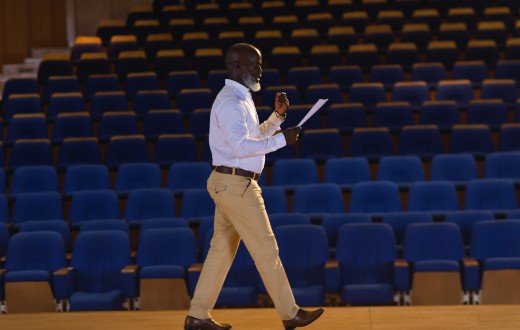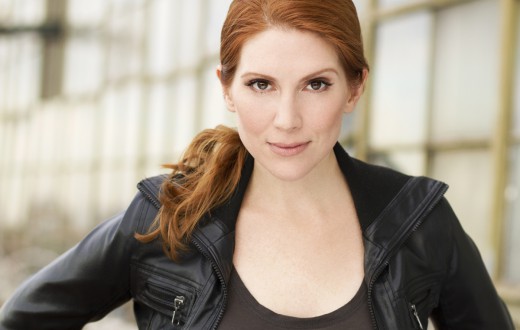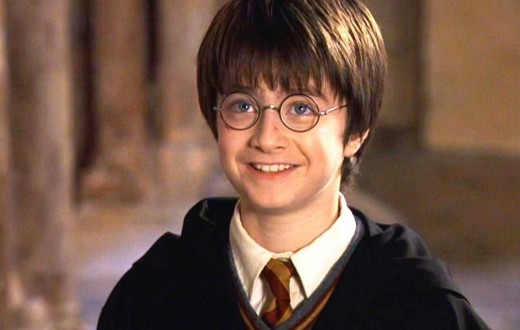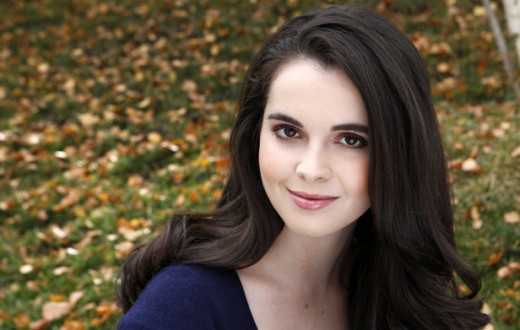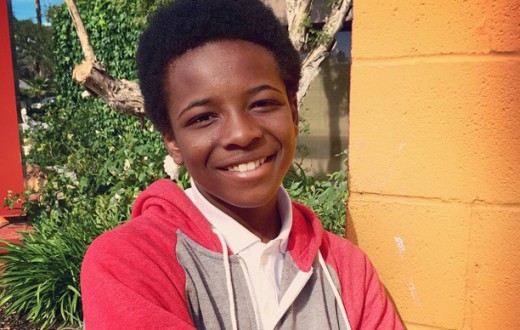Written by: Kayla Klatzkin
Auditions are part of an actor’s life. As a writer who’s also an actress, getting to talk with a casting director is a unique opportunity to learn from the perspective of the person at the other side of the audition room. Renée Torrière of very successful Shadow Casting (which casts on-camera commercials, film and print work) kindly agreed to this phone interview. A pleasure to speak with, she was good-humored (“it’s a little like Groundhog Day” she remarked before we began), thoughtful, and always generous with her advice, keeping in mind today’s current challenges. A great conversation with an industry insider who genuinely wants all the actors who step into her audition room (whether real or virtual) to succeed.
To start off I’d love to learn a little about your background. You are of course the owner and casting director of Shadow Casting, a major casting company with many high-profile clients (Google, Clinique and Bacardi being just a few examples). How did you build this business and get to where you are today?
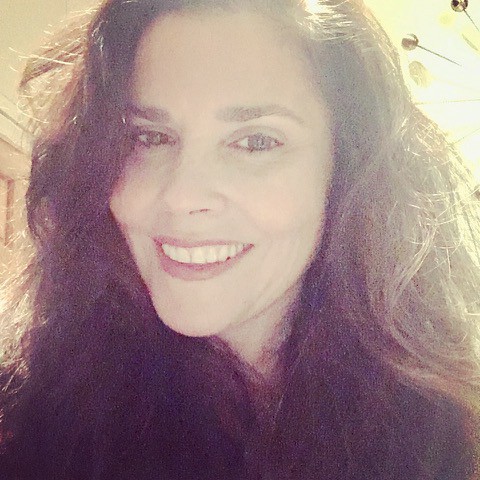 Well I started out over 20 years ago working at a production company and I knew nothing about the business except what everyone knows by watching television, looking at advertising, or seeing a movie. And I started out at the bottom, just by answering phones and things like that. I was producing at the time as well, and I found my niche in casting because I felt that for some reason I was both comfortable around the actors and I was able to translate a creative vision of what they wanted into a live human being. Having that skill, I developed the casting arm of that production company’s business and then I started my own business in 2005. Mainly it’s a word of mouth kind of thing. I’m not a huge marketer. I have clients and they recommend me to other people.
Well I started out over 20 years ago working at a production company and I knew nothing about the business except what everyone knows by watching television, looking at advertising, or seeing a movie. And I started out at the bottom, just by answering phones and things like that. I was producing at the time as well, and I found my niche in casting because I felt that for some reason I was both comfortable around the actors and I was able to translate a creative vision of what they wanted into a live human being. Having that skill, I developed the casting arm of that production company’s business and then I started my own business in 2005. Mainly it’s a word of mouth kind of thing. I’m not a huge marketer. I have clients and they recommend me to other people.
Clearly you’ve had a lot of success, which leads me to my next question. In your long and distinguished career as a casting director, what has been one of your proudest moments?
I think when it’s the most challenging. When a lot of asked of me and it’s unusual. I had a casting when Aljazeera first came to the United States. They wanted me to go out into the street which is something I rarely do, I think that’s a particular niche. But it was for a client who was very reputable. They wanted people age 25-45. But here was the clincher- they wanted them to be American citizens from all different backgrounds. Every background you could imagine. I don’t know if you remember – but several years back there was a spate of 100 plus degree weather over the Fourth of July. And I had six days, and I sent out four teams of two, all over every borough. And in that time we found over 900 people for them to choose from. And this was a Herculean task given the weather, and in the summertime and a holiday time to find Americans over the Fourth of July. But we did it and I’m very proud of that campaign.
Switching gears to what is currently going on in the world- the COVID-19 pandemic as we all know has hit hard on the entertainment industry, but I think we’re all looking for a little bit of hope. Are there projects that casting companies such as yours are actively casting for and if yes what type?
Well you’re absolutely right. This pandemic has hard hit this industry, and right now the things that are happening are mainly voiceover which isn’t my bailiwick, and also remote kind of castings. I’ve done some estimates but they’re all things like hand models, or remote casting stuff (where the actor or model does a remote taping of specific dialogue or captures specific images that the client will need for the shoot, once we are in the process of coming out of “pause” in NYC and can plan actual shoots again). And I think when we start up and running again it’s going to seriously affect the way we do business. I think the castings will start out virtual which is fine. Because everybody has a phone pretty much, and can videotape themselves, take pictures of themselves, and can send their headshots. Nothing’s as good as a casting director taking the same kind of pictures of every person with the same lighting and no filters. But we will get that done and that’s doable. I think after that, when we have studio castings again, they’ll either be strung out over a longer period of time, or the clients will see fewer submissions. Because if we have to keep people six feet apart, that’s doable in a casting room. But what about everybody waiting? We don’t want to put anyone in danger. But I do think we’ll bounce back, and when we do start to open up it’s going to be very busy.
Speaking of auditions, since that’s very much your area of expertise, I’ve got some questions now relating to auditions. For auditions in general, how can actors make the best first impression?
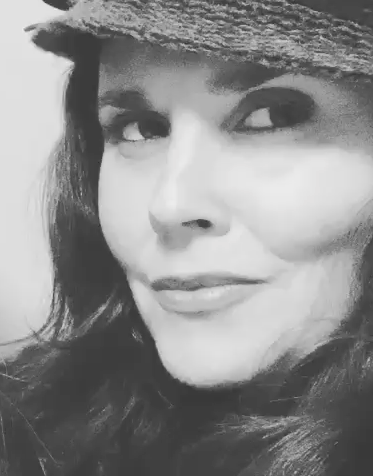 That’s a great question. The most important thing is that you be on time. Not extremely early, and certainly not late. And be prepared. If you’ve been given a specification as to what this person is supposed to be, a mom or a businessman for example, dress the part. Don’t come in your ripped jeans and t-shirt. Because you have to understand that clients aren’t creative necessarily, and they want to see exactly what they imagine. They imagine a business person, they want to see you in a suit and clean shaven. If they want to see a mom they want to see sort of a Banana Republic/Gap look, not overly made up or look like you’re going to the disco. But I think you will make the audition a lot easier if you’re polite, if you’re organized, if you know who sent you. If you have any paperwork you had to fill out that you do that. You only have that short period of time to impress the casting crew. Why not just be a cool person when you’re there, and nice and polite. If you’re irritated by your day or your wife or your kids or the casting assistant, save it for the hallway, not for inside the casting room. Because all you need is for one casting director to have a bad taste in his or her mouth, and that’s it. This is your job. So you have to take it as your job, every audition is your job.
That’s a great question. The most important thing is that you be on time. Not extremely early, and certainly not late. And be prepared. If you’ve been given a specification as to what this person is supposed to be, a mom or a businessman for example, dress the part. Don’t come in your ripped jeans and t-shirt. Because you have to understand that clients aren’t creative necessarily, and they want to see exactly what they imagine. They imagine a business person, they want to see you in a suit and clean shaven. If they want to see a mom they want to see sort of a Banana Republic/Gap look, not overly made up or look like you’re going to the disco. But I think you will make the audition a lot easier if you’re polite, if you’re organized, if you know who sent you. If you have any paperwork you had to fill out that you do that. You only have that short period of time to impress the casting crew. Why not just be a cool person when you’re there, and nice and polite. If you’re irritated by your day or your wife or your kids or the casting assistant, save it for the hallway, not for inside the casting room. Because all you need is for one casting director to have a bad taste in his or her mouth, and that’s it. This is your job. So you have to take it as your job, every audition is your job.
With self-tapes being the primary and most safe way to conduct auditions now, what advice can you offer actors to make their self-tapes stand out?
Clearly not everybody has the best devices, not everybody has the best lighting. But you can get a little key light from a desk lamp or from Amazon for $10. Test it out. Make sure your background is decent- you don’t want it too busy. And make sure you’re clear, and you feel as if you are in a casting studio. Where this is it, you have this moment. And because we have so much time on our hands these days, you could rehearse it a bunch of times and show it to friends, get some opinions. And maybe one person says, “You know what you don’t look good in red.” “You know what your lipstick is too bright.” “You know what you’re too blown out.” As we know shadows and lights in our apartments and homes can really make you look bad. So try to invest in good lighting as you would invest in anything else related to a casting. And when taping imagine it’s as if you are there.
It’s true with all the time we have now this is a good time to really perfect our self-tapes.
Absolutely. Use it wisely. And I’ve told actors at the seminars this many times; it’s amazing how different you are from in a photograph or your headshot, and how you are in person, how you really are. And you want to know what you look like when you only are given two minutes to get in there and get yourself taped or photographed. See what you do that’s wrong. Do you tilt your chin the wrong way so you can only see your neck? Do you have a weird quirk in your smile? Do a self-tape without seeing what you look like, and see what it is you’re doing that’s weird. Do you have a tick, what is it? These are the times you can really use to perfect this so that when we do get back up and running that you can be at your best when you’re in a studio.
You do a lot of on-camera commercial casting. Are there any tips you can give for how an actor can nail their next commercial audition?
I would say, and this applies to everything – I feel really strongly that actors have to know how they see themselves. And seeing yourself – what the reality is and what you see – are two different things sometimes. For example, if somebody presents as a rock chick, but in person looks like Proctor and Gamble, Midwest Ohio chick. Have all the rock chick you want in your private life. But if what you present as commercially is the P&G wholesome Midwesterner, you have to perfect that for the studio and for your auditions. You just don’t suddenly become the girl next door if you look exotic and like Sophia Loren. That doesn’t happen. You have to work the Sophia Loren angle. And you have to have clothing for that, makeup for that and parts for that. And you have to be prepared. In your private life if you are the girl next door, great. But you have to sell what you are and you have to be aware of it. That’s the most important advice I think I can give an actor in this business because we know what a small percentage of actors actually work when the business is good. And if you’re going to be one of those people you have to be prepared, you have to be armed properly.
When you are going through submissions to select actors for an audition, what will make a particular actor grab your attention?
I’ll tell you what doesn’t grab my attention- when people do something that’s odd or peculiar in their photos. Weird hand gestures, weird get-ups, things like that will turn me off. Unless of course I’m looking for that. But generally speaking I need to see intent behind someone’s eyes, I need to see there’s something going on there. And that they’ve taken the time as we said to really know themselves and see what I’m looking for.
So they know who they are, they know their type-
And they’re able to convey that with a look, or one scene. You don’t need a lot. And if I need a lot I would ask for that particular thing in the actual audition. Again it depends on what the client is looking for. And then for me – at least in the past – my method of casting sessions was always more is more. I would rather give a client what I think they want, and things on either side of that. Because what I think they’ve tried to convey they need, and what they think they have tried to convey to me are two different things. I need to make sure I’ve covered the middle and both sides. So that surprisingly they might go for someone much more outlandish than I thought, or much milder than I thought. So you never know, you want to make sure you have all these options. I would rather have a client say to me, “Oh my gosh there’s an embarrassment of riches, I don’t know which person to choose out of all these,” as opposed to “I guess I’ll take these.”
That’s how you know you’ve done your job well.
Exactly. But again after this it may not be like that. It might be more precise and they’re going to have to have less choice unless they want to pay for more casting.
Since our readers are actors at various levels in their career, I know some of them are probably wondering, would you ever give a new actor with minimal credits the opportunity to audition?
Of course. I mean again, as we know the map here is there’s not a paucity of white American actors. When I’m looking for unusual types then obviously your chances are higher for getting an audition because let’s face it, I don’t have a million Indian men who are 60. Or a Japanese little girl. So I will see them all. When you have this proliferation of white males and females you have to be more selective and look at the type, look at how they’ve presented themselves and see as many people as you can. I like to give as many people an opportunity as possible. That’s the way I’ve been thinking in the past. But I think that’s going to change, going to have to. So people are going to have to be, as I said, using this time to really zero in on who they are, get their skills up and it’s going to be a tighter market probably.
Any last pieces of advice you can offer actors on how to stay motivated during this challenging time?
I think they have to realize there’s going to be a light at the end of the tunnel, and they need to be prepared for that. And then if they use this time wisely in any capacity, if that means self-taping to practice, if that mean perfecting monologues, if that means reading more sides, practicing commercial copy; whatever it is this time should be used wisely. It’s like your own home classroom. I know there are online seminars going around, there are acting classes that people can do virtually, and it’s not the same thing but it’s something. And I realize myself, simply by Zooming with friends every night, different friends, that I’m on camera, and I’m not doing this for a living. Yet I realize that I’m getting better at that, simply because I have to look not disheveled and crazy. And I realized what light is best, and I realized where my hair looks nice and what makeup looks okay.
Just from Zooming with friends!
Yeah and I think not everyone’s doing that, but as an actor this is a great opportunity for yourself all the time. It’s also a great time to catch up on some great viewing. And that always is bolstering to the ego and as an actor, to see that great work you love is out there and you can be a part of it.
“Great work you love is out there and you can be a part of it” – can’t think of a more perfect way to end our conversation. A great reminder by Ms. Torrière that this “Groundhog Day” will end, and to stay inspired as actors to keep doing what we do. And with that I am off to go practice my self-tapes.


